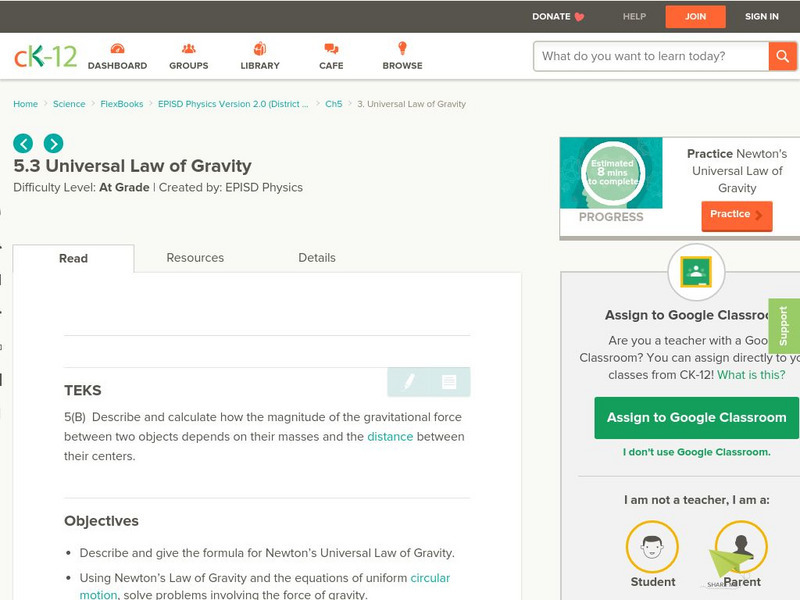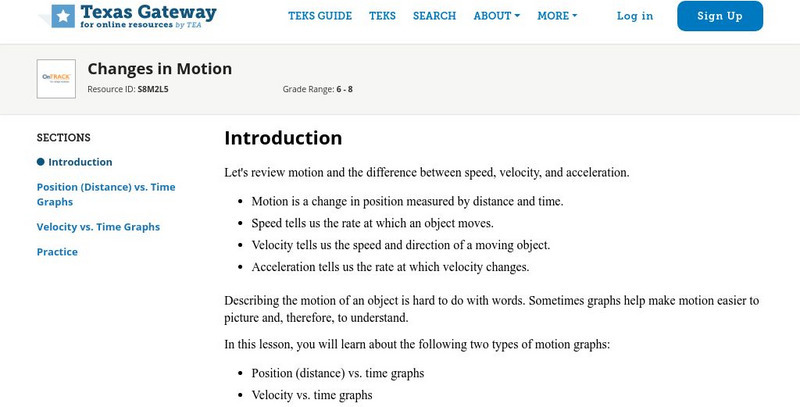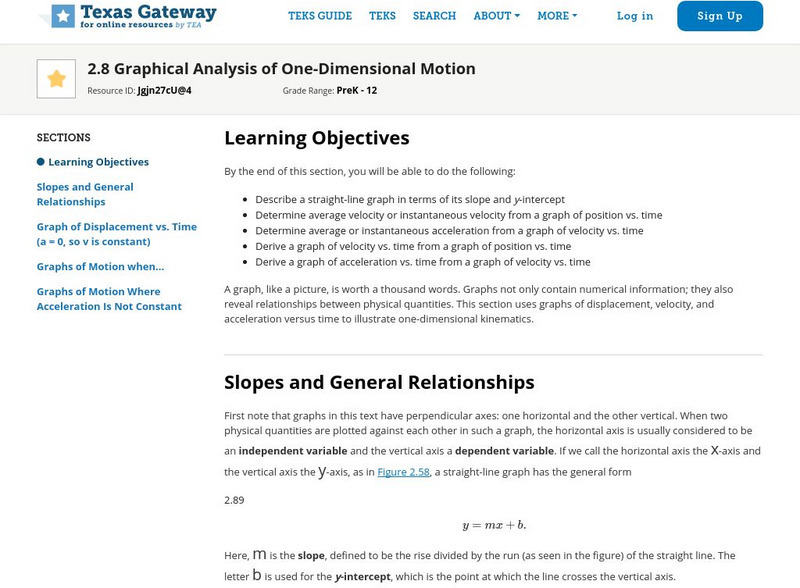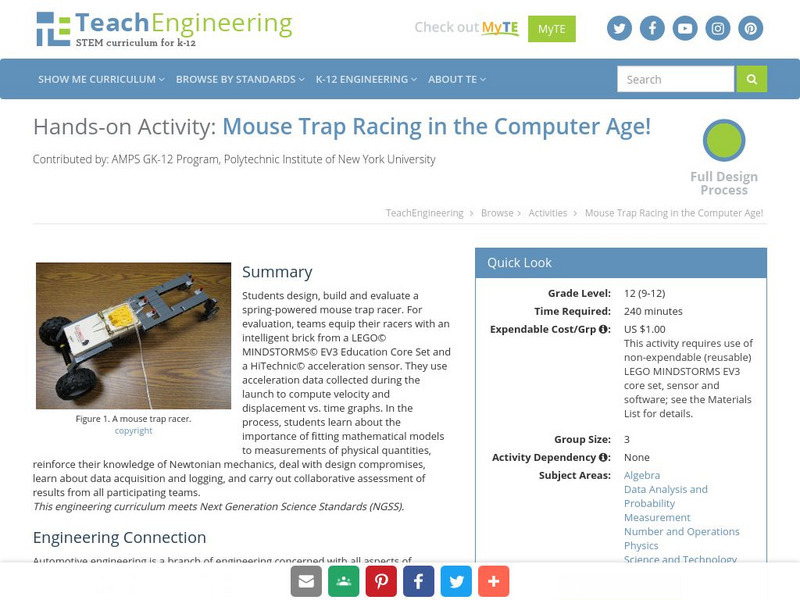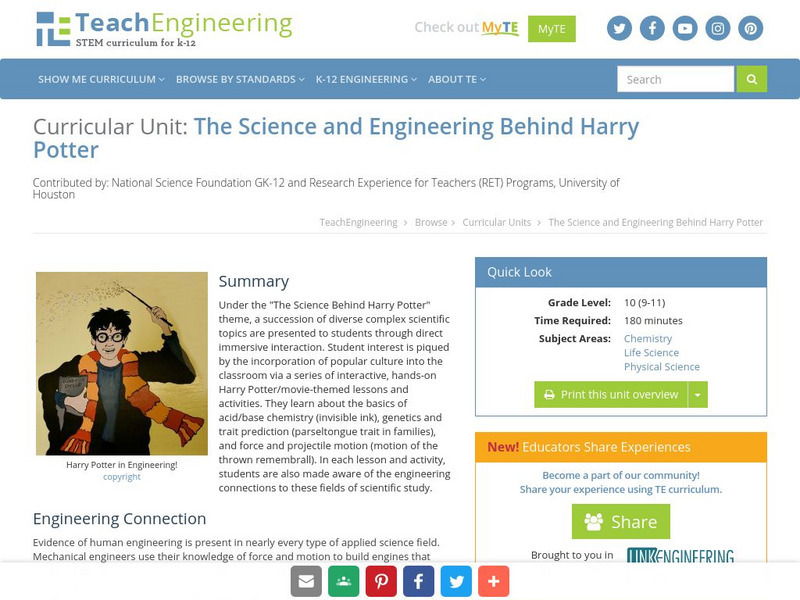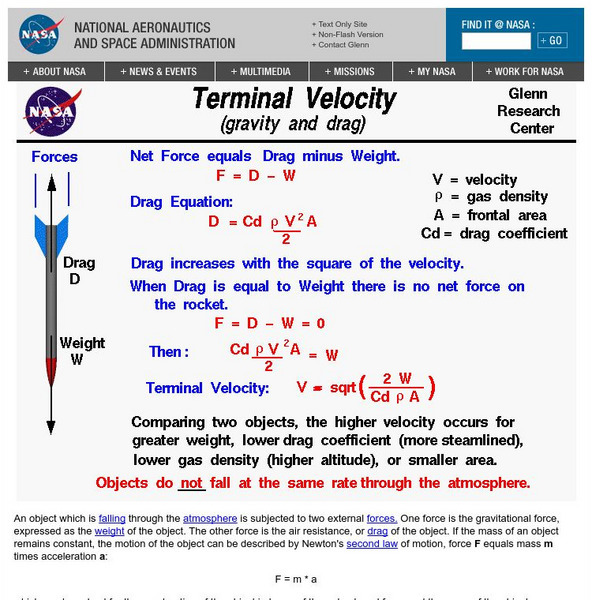CK-12 Foundation
Ck 12: Universal Law of Gravity
[Free Registration/Login may be required to access all resource tools.] In this online tutorial students will learn to describe and calculate how the magnitude of the gravitational force between two objects depends on their masses and...
CK-12 Foundation
Ck 12 Exploration Series: Simulations: Physics: Irwin 2 D
[Free Registration/Login Required] Learn about the trajectories in two dimensions through simulation and examples. Some of the concepts identified are motion and velocity.
Physics Classroom
The Physics Classroom: Motion and Forces in Two Dimensions: Vector Components
Students examine examples of vectors that are directed in two dimensions- upward and rightward, northward and westward, eastward and southward, etc.
CK-12 Foundation
Ck 12: Physics Simulation: Goalie
[Free Registration/Login Required] This hockey simulation addresses the question of how to force an object to move in a circle.
Walter Fendt
Walter Fendt: Simple Pendulum
This app demonstrates how elongation, velocity, tangential acceleration, force, and energy are affected when a pendulum oscillates.
Physics Classroom
The Physics Classroom: Mathematics of Satellite Motion
The mathematics associated with the motion of satellites is described. Equations (for period, velocity, acceleration and force) are stated, symbols described, and sample problems solved. Includes five practice problems with solutions and...
Open Curriculum
Open Curriculum: Vectors and Motion
Learn more about the properties of velocity, acceleration, and force vectors in this illustrated article.
Science Education Resource Center at Carleton College
Serc: Maximizing Kinetic Energy: An Investigation Using Marbles
Using marbles to construct a marble run, learners will learn about projectile motion, kinetic energy, potential energy, final velocity, and forces.
Physics Classroom
The Physics Classroom: Describing Motion With Words
This lesson from the Glenbrook South High School gives a nice review and detailed explanation of velocity, speed, distance, displacement, and acceleration. A good introduction to the "language of Kinematics."
Texas Education Agency
Texas Gateway: Changes in Motion
In this lesson, you will learn about position vs. time graphs and velocity vs. time graphs and how to use them to solve problems.
Texas Instruments
Texas Instruments: Classroom Activities: Parachuting
This activity explores a parachutist and her position, velocity and acceleration. Graphing and calculating these functions will be required.
Other
Center for Education Partnerships: The Marble Roll
In this Science-athon, students try to make their marble roll the farthest across a flat surface, using their knowledge of forces, motion, and energy to guide them through their apparatus design. Teachers must enroll online.
Science Education Resource Center at Carleton College
Serc: Newton's Second: Having a Ball With Motion
Students will create a gravity ball launcher to demonstrate their understanding of mass, force, momentum, and motion. The students will use critical thinking, measurement, and observation and analysis of data to make changes and improve...
Curated OER
Zona Land: Components of a Vector
An interactive Java applet where users can rotate a vector about its tail and view the components of that vector. Magnitude of the components is updated on screen as the vector is dragged.
Texas Education Agency
Texas Gateway: Kinematics: Graphical Analysis of One Dimensional Motion
By the end of this section, you will be able to describe a straight-line graph in terms of its slope and y-intercept, determine average velocity or instantaneous velocity from a graph of position vs. time, determine average or...
Texas Education Agency
Texas Gateway: Introduction to Motion
What do you think of when you hear the word motion? Are you moving right now? You may not think so, but you are. Remember, the Earth is moving around the Sun, and the Sun is moving around the Milky Way Galaxy. Everything in the universe...
Middle School Science
Middle School Science: Motion Notes
Personal site in which a teacher outlines a unit on motion. Probes through topics such as average speed, velocity, acceleration, speed, deceleration, force and more.
University of Colorado
University of Colorado: Ph Et Interactive Simulations: My Solar System
An interactive simulation that teaches about motion, acceleration, and velocity by allowing students to build their own solar system and watch the effects of gravitational pull and how that changes with initial position, velocity, and...
TeachEngineering
Teach Engineering: Mouse Trap Racing in the Computer Age!
Students design, build and evaluate a spring-powered mouse trap racer. For evaluation, teams equip their racers with an intelligent brick from a LEGO MINDSTORMS NXT Education Base Set and a HiTechnic acceleration sensor. They use...
TeachEngineering
Teach Engineering: Projectile Magic
Learners watch video clips from October Sky and Harry Potter and the Sorcerer's Stone to learn about projectile motion. They explore the relationships between displacement, velocity and acceleration and calculate simple projectile...
TeachEngineering
Teach Engineering: Engineering Out of Harry Situations
Under the "The Science Behind Harry Potter" theme, a succession of diverse complex scientific topics are presented to students through direct immersive interaction. Student interest is piqued by the incorporation of popular culture into...
Georgia Department of Education
Ga Virtual Learning: Ap Physics 1: Simple Harmonic Motion
In this unit, students will discover the period of time of one oscillation, the frequency of oscillation, the object displacement, its velocity, and its acceleration. They will also discover how to apply the principles of conservation of...
NASA
Nasa: Beginner's Guide to Aerodynamics
This site from NASA uses a colorful graphic to illustrate why objects reach terminal velocity. Provides equation for the terminal velocity of an object. Graphic is accompanied by a simple explanation.
PBS
Pbs Learning Media: Defying Gravity
Students are asked how acceleration, mass, momentum and velocity are involved in mountain boarding. [0:32]


